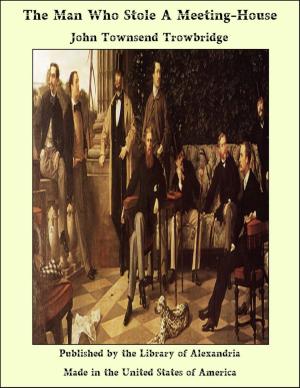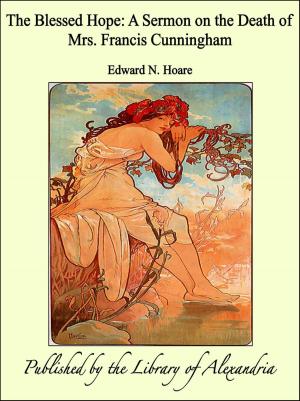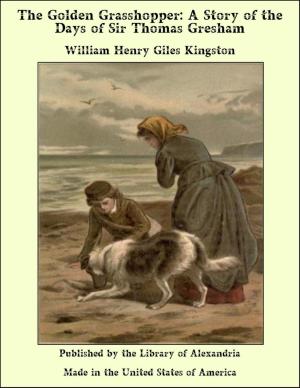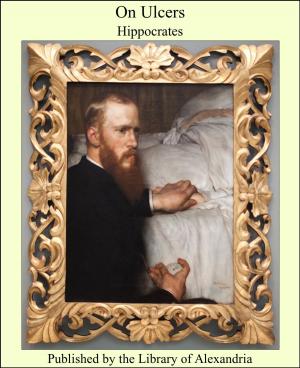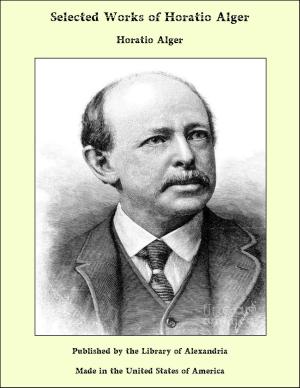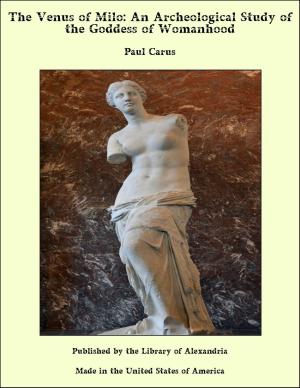| Author: | William Makepeace Thackeray | ISBN: | 9781465540041 |
| Publisher: | Library of Alexandria | Publication: | March 8, 2015 |
| Imprint: | Language: | English |
| Author: | William Makepeace Thackeray |
| ISBN: | 9781465540041 |
| Publisher: | Library of Alexandria |
| Publication: | March 8, 2015 |
| Imprint: | |
| Language: | English |
SIR LUDWIG OF HOMBOURG. It was in the good old days of chivalry, when every mountain that bathes its shadow in the Rhine had its castle: not inhabited, as now, by a few rats and owls, nor covered with moss and wallflowers, and funguses, and creeping ivy. No, no! where the ivy now clusters there grew strong portcullis and bars of steel; where the wallflower now quivers in the rampart there were silken banners embroidered with wonderful heraldry; men-at-arms marched where now you shall only see a bank of moss or a hideous black champignon; and in place of the rats and owlets, I warrant me there were ladies and knights to revel in the great halls, and to feast, and to dance, and to make love there. They are passed away:—those old knights and ladies: their golden hair first changed to silver, and then the silver dropped off and disappeared for ever; their elegant legs, so slim and active in the dance, became swollen and gouty, and then, from being swollen and gouty, dwindled down to bare bone- shanks; the roses left their cheeks, and then their cheeks disappeared, and left their skulls, and then their skulls powdered into dust, and all sign of them was gone. And as it was with them, so shall it be with us. Ho, seneschal! fill me a cup of liquor! put sugar in it, good fellow—yea, and a little hot water; a very little, for my soul is sad, as I think of those days and knights of old. They, too, have revelled and feasted, and where are they?—gone?—nay, not altogether gone; for doth not the eye catch glimpses of them as they walk yonder in the gray limbo of romance, shining faintly in their coats of steel, wandering by the side of long- haired ladies, with long-tailed gowns that little pages carry? Yes! one sees them: the poet sees them still in the far-off Cloudland, and hears the ring of their clarions as they hasten to battle or tourney—and the dim echoes of their lutes chanting of love and fair ladies! Gracious privilege of poesy! It is as the Dervish’s collyrium to the eyes, and causes them to see treasures that to the sight of donkeys are invisible. Blessed treasures of fancy! I would not change ye—no, not for many donkey-loads of gold… . Fill again, jolly seneschal, thou brave wag; chalk me up the produce on the hostel door—surely the spirits of old are mixed up in the wondrous liquor, and gentle visions of bygone princes and princesses look blandly down on us from the cloudy perfume of the pipe. Do you know in what year the fairies left the Rhine?—long before Murray’s “Guide-Book” was wrote—long before squat steamboats, with snorting funnels, came paddling down the stream. Do you not know that once upon a time the appearance of eleven thousand British virgins was considered at Cologne as a wonder? Now there come twenty thousand such annually, accompanied by their ladies’-maids. But of them we will say no more—let us back to those who went before them. Many, many hundred thousand years ago, and at the exact period when chivalry was in full bloom, there occurred a little history upon the banks of the Rhine, which has been already written in a book, and hence must be positively true. ‘Tis a story of knights and ladies—of love and battle, and virtue rewarded; a story of princes and noble lords, moreover: the best of company. Gentles, an ye will, ye shall hear it. Fair dames and damsels, may your loves be as happy as those of the heroine of this romaunt
SIR LUDWIG OF HOMBOURG. It was in the good old days of chivalry, when every mountain that bathes its shadow in the Rhine had its castle: not inhabited, as now, by a few rats and owls, nor covered with moss and wallflowers, and funguses, and creeping ivy. No, no! where the ivy now clusters there grew strong portcullis and bars of steel; where the wallflower now quivers in the rampart there were silken banners embroidered with wonderful heraldry; men-at-arms marched where now you shall only see a bank of moss or a hideous black champignon; and in place of the rats and owlets, I warrant me there were ladies and knights to revel in the great halls, and to feast, and to dance, and to make love there. They are passed away:—those old knights and ladies: their golden hair first changed to silver, and then the silver dropped off and disappeared for ever; their elegant legs, so slim and active in the dance, became swollen and gouty, and then, from being swollen and gouty, dwindled down to bare bone- shanks; the roses left their cheeks, and then their cheeks disappeared, and left their skulls, and then their skulls powdered into dust, and all sign of them was gone. And as it was with them, so shall it be with us. Ho, seneschal! fill me a cup of liquor! put sugar in it, good fellow—yea, and a little hot water; a very little, for my soul is sad, as I think of those days and knights of old. They, too, have revelled and feasted, and where are they?—gone?—nay, not altogether gone; for doth not the eye catch glimpses of them as they walk yonder in the gray limbo of romance, shining faintly in their coats of steel, wandering by the side of long- haired ladies, with long-tailed gowns that little pages carry? Yes! one sees them: the poet sees them still in the far-off Cloudland, and hears the ring of their clarions as they hasten to battle or tourney—and the dim echoes of their lutes chanting of love and fair ladies! Gracious privilege of poesy! It is as the Dervish’s collyrium to the eyes, and causes them to see treasures that to the sight of donkeys are invisible. Blessed treasures of fancy! I would not change ye—no, not for many donkey-loads of gold… . Fill again, jolly seneschal, thou brave wag; chalk me up the produce on the hostel door—surely the spirits of old are mixed up in the wondrous liquor, and gentle visions of bygone princes and princesses look blandly down on us from the cloudy perfume of the pipe. Do you know in what year the fairies left the Rhine?—long before Murray’s “Guide-Book” was wrote—long before squat steamboats, with snorting funnels, came paddling down the stream. Do you not know that once upon a time the appearance of eleven thousand British virgins was considered at Cologne as a wonder? Now there come twenty thousand such annually, accompanied by their ladies’-maids. But of them we will say no more—let us back to those who went before them. Many, many hundred thousand years ago, and at the exact period when chivalry was in full bloom, there occurred a little history upon the banks of the Rhine, which has been already written in a book, and hence must be positively true. ‘Tis a story of knights and ladies—of love and battle, and virtue rewarded; a story of princes and noble lords, moreover: the best of company. Gentles, an ye will, ye shall hear it. Fair dames and damsels, may your loves be as happy as those of the heroine of this romaunt

